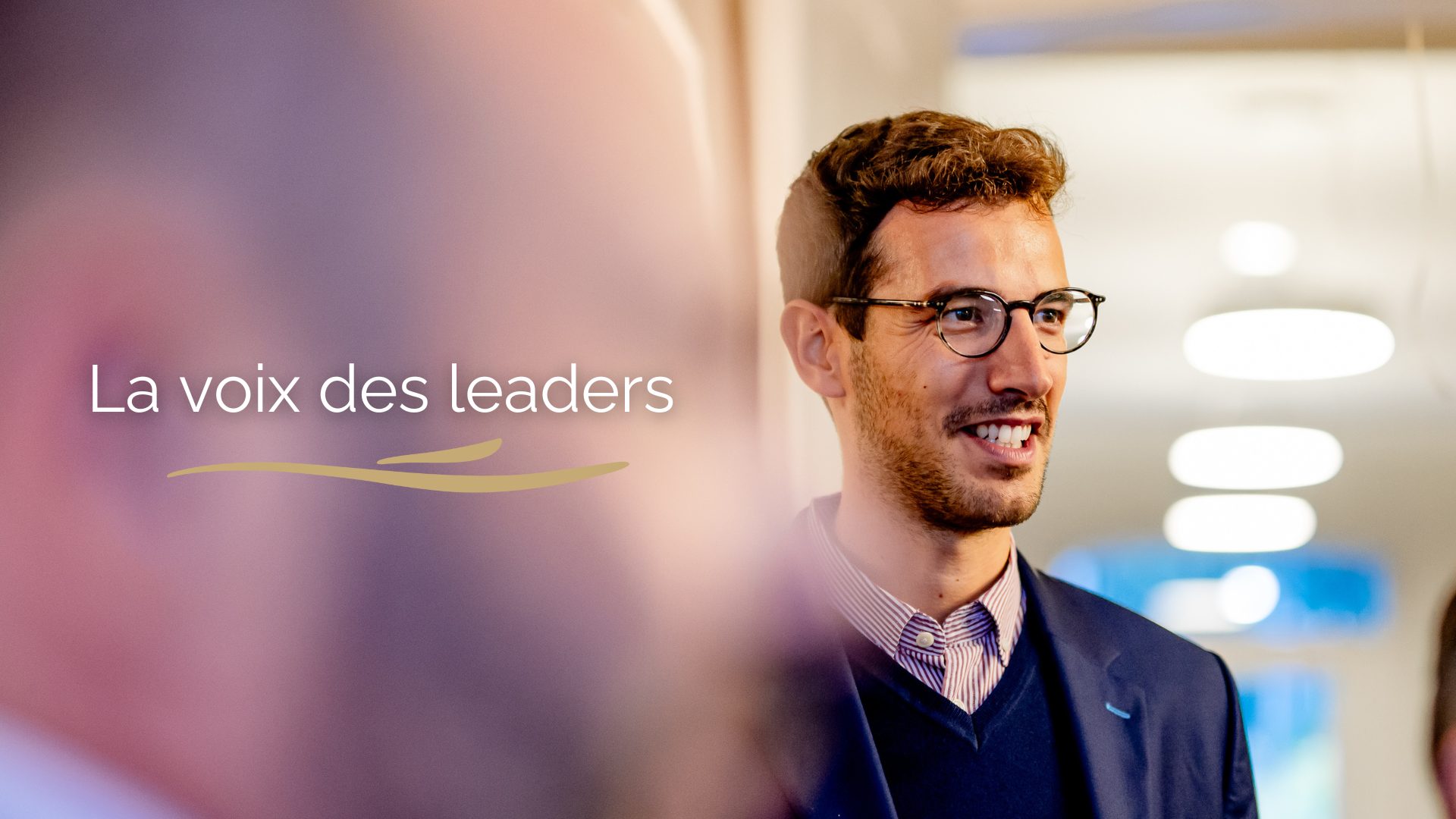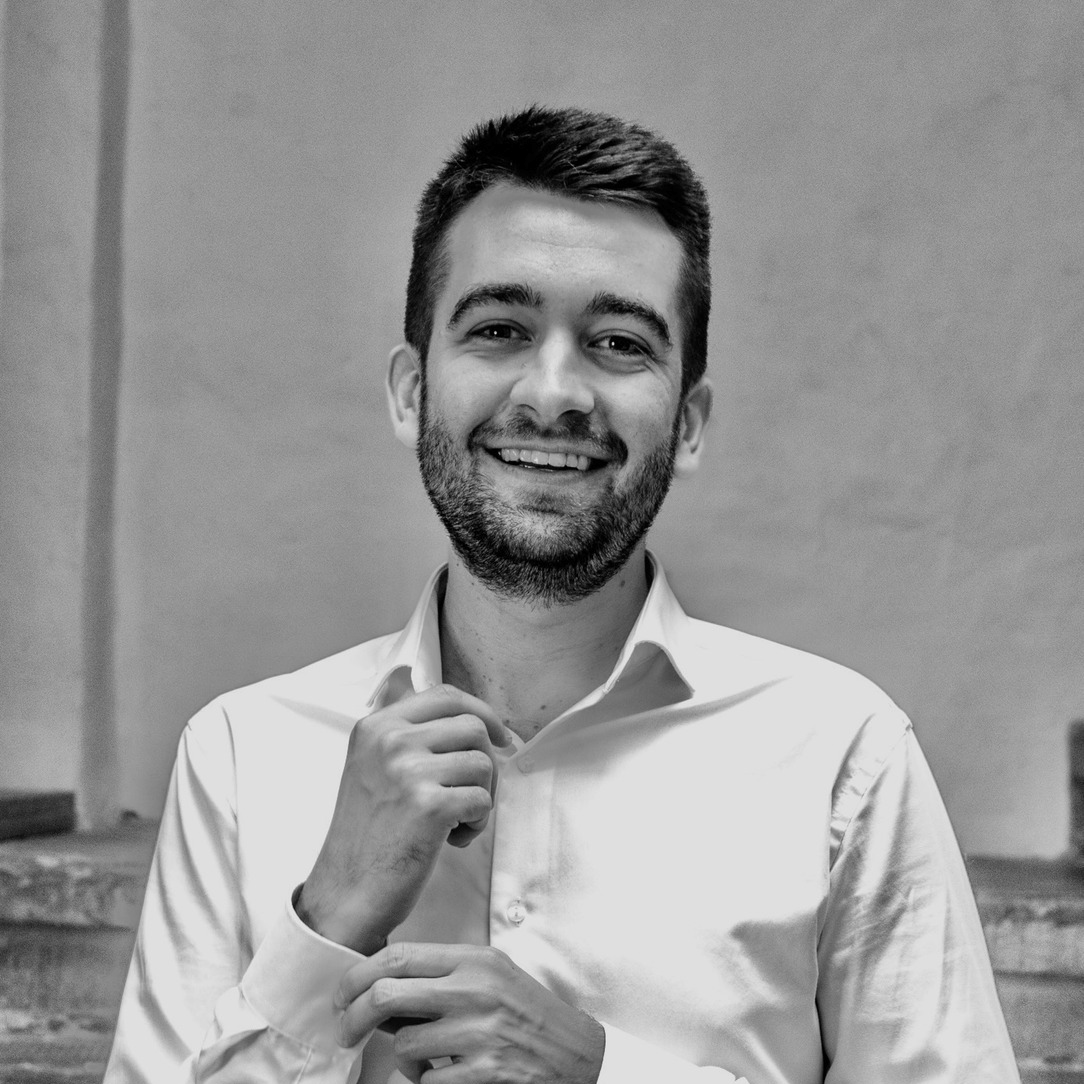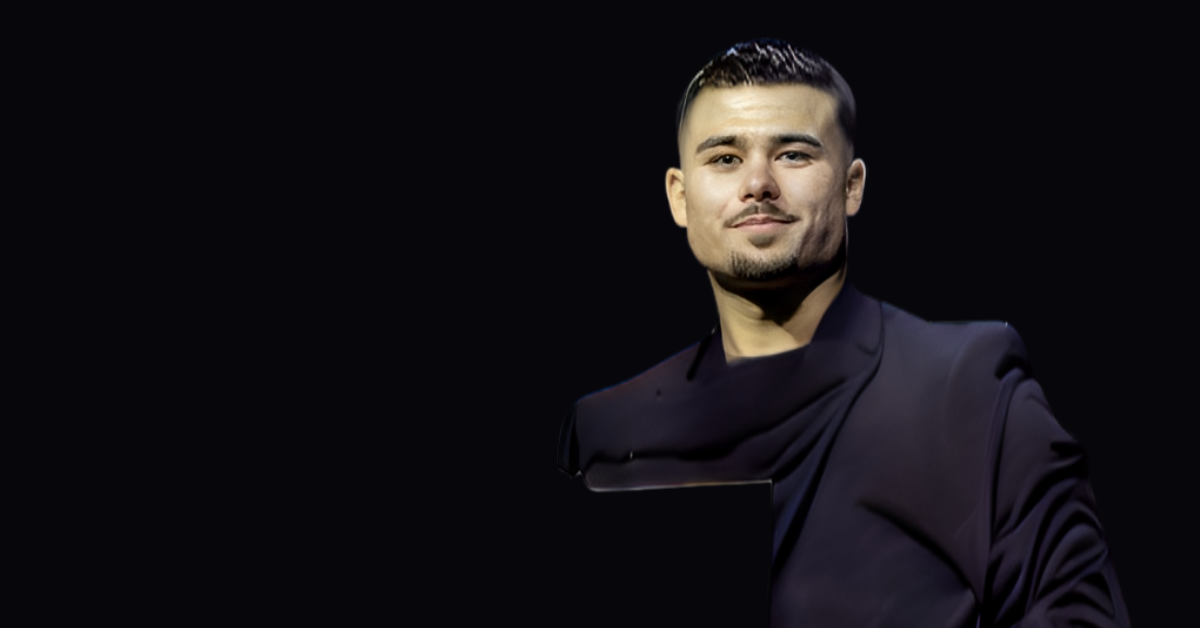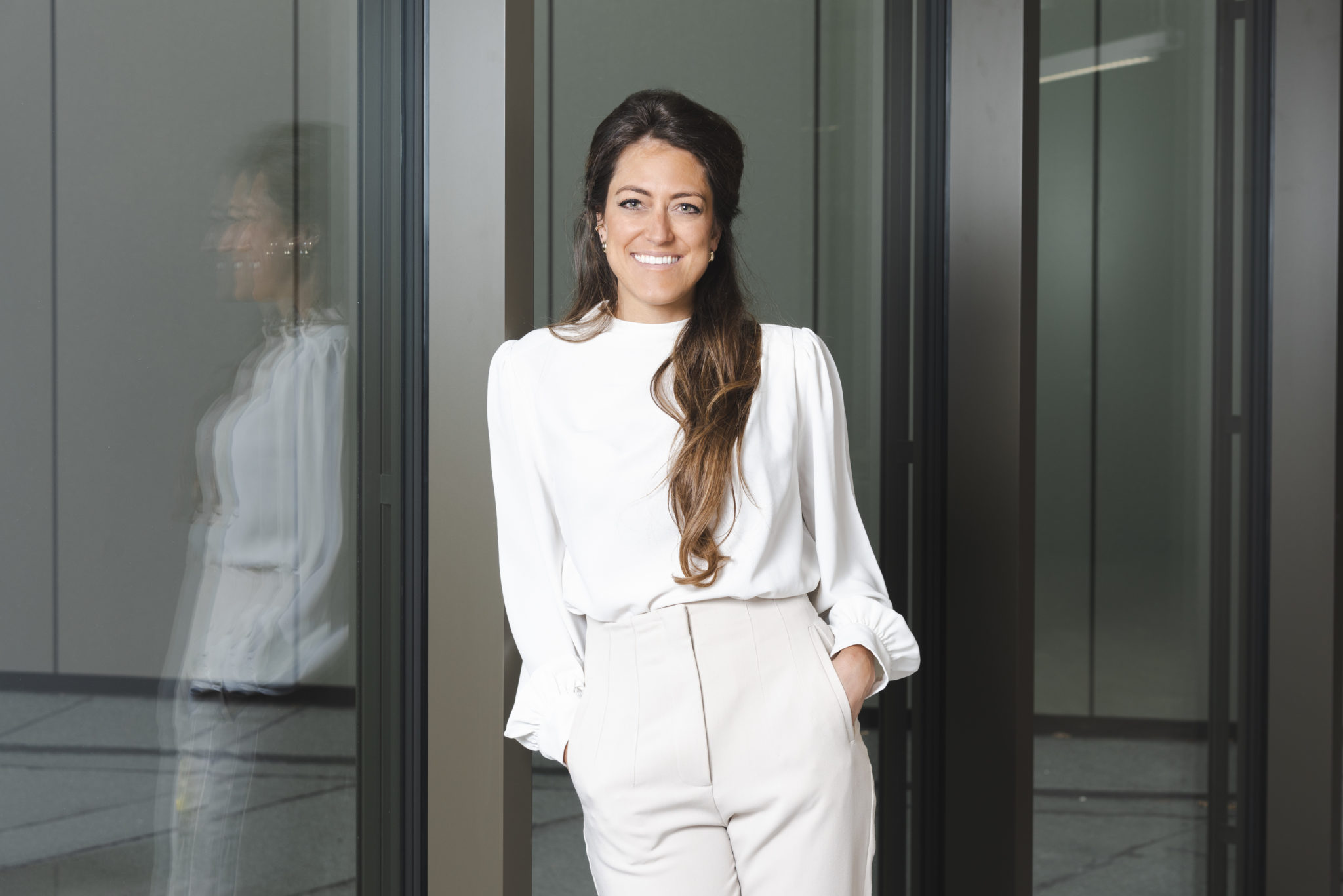Interview
Thibault Bougamon
Hello Thibault,
In this exclusive interview, Thibault Bougamont, currently District Manager at MEININGER Hotels and a Post-Diploma Hotel Management student at theÉcole Hôtelière de Genève, shares his inspiring journey with us. From his early days as a receptionist in Montpellier to managing several hotels in Switzerland, he reveals his successes, challenges and lessons learned along the way.
A must-read for all hospitality enthusiasts and future talents in the sector!
Let's go back to your beginnings: you started your career as a receptionist at Baudon de Many in Montpellier. What initially attracted you to the hospitality sector?
My career in the hotel business actually began at Baudon de Mauny in Montpellier around ten years ago, but my professional path had begun a little earlier.
I first worked as a sales assistant in small beachside clothing boutiques in the south of France. Then I had the opportunity to move to the Caribbean, to Saint-Martin, where I managed a clothing boutique. It was during this experience that I discovered my interest in the hospitality sector.
I particularly enjoyed talking to customers, giving them advice on the island, on activities and places to discover. On my return to Montpellier, after this enriching experience in the Caribbean, I wondered what I should do next. It soon became clear that I wanted to become a receptionist or concierge, a job in direct contact with customers that would allow me to share my passion for my city.
That’s how I became attracted to the world of hospitality, a sector that perfectly matched my aspirations and desires.
What memories do you have of this first professional experience, and how did it prepare you for the rest of your career?
The experience was ideal, if I may say so, and above all very rewarding. It was a small facility with just seven rooms, where I worked part-time.
In the morning, I was in charge of breakfast and check-out. In the afternoons, I did check-ins, folded towels and checked rooms. So I had a very versatile role.
The main thing this experience taught me was versatility. I also developed a strong sense of detail and a demand for quality, which have served me well in the future. Although it was a small establishment, it was of a very high standard, and the owners, who were present on site, had very high expectations.
For example, silver cutlery had to be impeccably cleaned and precisely arranged. The customer flow was particularly meticulous.
This versatility is still useful to me today. The fact that I was involved in almost every aspect of the hotel – reservations, room control, breakfasts, check-in – gave me an overview of the hotel business, even on a small scale. This made it easier for me to adapt to all my subsequent jobs.
Your progress from receptionist in Montpellier to District Manager in Switzerland is impressive. What stages of your career do you consider to be turning points?
I began my career as a receptionist, working successively at Baudon de Mauny, Mercure Hotels and Crowne Plaza® Hotels & Resorts.
The turning point came when I decided to leave Montpellier and move to Brussels. There, I made the transition to housekeeping at the Hotel Amigo, a Rocco Forte Hotel, a landmark hotel in Brussels, first as floor supervisor, then quickly as assistant housekeeping manager. It was at this point that my career really took off, as I moved into a management position. I found myself managing a team of 45 people, which represented a major change in my responsibilities.
This experience was decisive for the rest of my career. It enabled me to develop my team management skills, which in turn opened the doors to Meininger Hotels. I started as assistant hotel manager for the opening of our second establishment in Brussels, then hotel manager for the opening of our Swiss establishment, before taking up my current position as district manager.
I think this transition from reception to housekeeping was a key step in my career. It was there that I learned how to manage staff, and this experience really helped me build my career.
“It’s crucial to pay attention to those with experience, to learn from their know-how before trying to impose your own ideas.”
What prompted you to take on managerial responsibilities, and how did you prepare for these transitions?
In fact, I wasn’t specifically looking for a managerial position or any major responsibilities. What drew me to housekeeping was a desire to better understand the rooms department.
After three years in reception, I was beginning to master this aspect of the job, and I wanted to explore what was happening on the other side, in room management. I had applied for a floor supervisor position, which was more focused on room control and day-to-day management of floor staff, but not really a managerial role.
However, circumstances dictated that, just one month after my arrival, I was promoted to Assistant Governor General. And there I became a manager, somewhat in spite of myself. Going from managing zero people to managing 45 employees was a real leap, and one for which it’s difficult to be prepared.
What I learned in this situation was the importance of listening. It’s crucial to pay attention to those with experience, to learn from their know-how before trying to impose your own ideas. Back then, I knew very little, and even today, I’m still learning. Listening, understanding and drawing on the knowledge of others has enabled me to progress in this role.
You've worked in several European cities, including Brussels, Geneva and Montpellier. How have these multicultural experiences influenced the way you work and manage?
My experience began in the south of France, but it was in Saint-Martin, in the Caribbean, that I discovered the importance of multiculturalism. There, I worked with a team of five people, each from a different country.
I loved this environment, and it’s something I’ve sought out in my subsequent professional experiences. In fact, it’s one of the reasons why I really enjoyed housekeeping: there’s always an incredible diversity of nationalities, cultures and points of view.
For me, it’s fantastic to be able to learn, discover and exchange with people I might never have met in any other context. This diversity has also enabled me to understand and appreciate differences, which are in fact a real strength.
It taught me the importance of listening to others and valuing differences. This experience has profoundly influenced my management style, which I would describe today as more participative. Rather than imposing decisions, I prefer to listen to the team’s opinions, take their proposals into account and, together, find solutions. Quite often, these are much better than those I could have devised on my own.

Is there a destination or experience that has particularly marked your career?
If I had to choose a particularly significant experience, I would immediately mention Geneva. The opening of this hotel was unique, not least because of the circumstances of my arrival and the general context. I was initially an assistant hotel manager in Brussels, where I had already contributed to the opening of the Meininger hotel at the Gare du Midi. I saw that Meininger was opening new establishments in Bordeaux and Geneva and decided to visit the one in Bordeaux just before the pandemic, but I wasn’t convinced.
As I explored other possibilities, I discovered that Geneva was still in the midst of a major construction project, with little infrastructure to speak of. Despite this, I decided to take up the challenge. Having never been to Switzerland, nor to Geneva, I managed to land the job after two internal interviews, and was asked to start within the week.
It was an intense period: I had to leave my apartment in Brussels, where I’d been living for four years, and go to Lyon to help the team there train the new assistant managers, just before the start of the Covid crisis, which made the situation even more complex. In Geneva, I had to obtain the patente, a diploma required to work in the Swiss hotel business, which I didn’t have at the time. Meininger supported me by financing a three-month intensive training course.
I juggled classes, opening follow-up calls and site visits. Covid forced me to stay temporarily in Annemasse, then Lyon. As the opening approached, the pressure redoubled. Passing the licensing exam was crucial, as failure would have meant losing my job. Fortunately, I succeeded, which was a huge relief for the team and myself.
During this period, I was also in charge of recruitment. I recruited and trained the assistant in Lyon for a month. In the absence of a physical hotel, and in the midst of a health crisis, this represented a considerable challenge. Supported by assistant manager Grégoire Sylvestre, who was a key factor in our success, we recruited the entire team, selected suppliers and negotiated contracts, all while simultaneously managing hotel construction and reception.
“In my current role, I supervise the hotel managers in Geneva and Zurich, acting as a link between them and head office.”
For those unfamiliar with the job, could you explain what the role of District Manager at Meininger Hotels entails?
Indeed, the role can vary depending on the context, but let me explain my specific situation. Initially, I was a hotel manager, but following a number of changes in the company – with my direct superior changing sectors and the Zurich manager resigning at the same time – an opportunity arose. Having a good knowledge of the Swiss market and wishing to progress, I seized the opportunity, expressing by e-mail my desire to progress and take charge of regional management in Switzerland, although no such position was officially open at the time. After an interview, I got the job, taking advantage of the opportunity to become the main point of contact for Switzerland, a fairly specific market.
In my current role, I supervise the hotel managers in Geneva and Zurich, acting as a link between them and head office. I ensure that several key performance indicators, such as customer satisfaction, employee satisfaction and revenue, are achieved efficiently. I also ensure the ongoing development of my teams to avoid monotony in their work, and undertake various assignments for the head office.
For example, I recently covered for a colleague on paternity leave in the quality and systems department, and from this year onwards, I’ll be reviewing housekeeping operations at group level for our 36 hotels. We have identified great opportunities for optimization through the use of advanced technologies, such as robots. My job is also to work closely with the purchasing department to implement these improvements in all our establishments, and to personally assist the hotels in fine-tuning their operations.
It’s an ambitious project for the coming year, and I’m looking forward to seeing it through.
What are the main challenges you face in managing several sites simultaneously?
My role mainly involves telecommuting, about 80% of the time, which allows me to manage everything digitally thanks to the advanced tools we have at Meininger. I can carry out all my tasks from my laptop, which is very practical. Nevertheless, I visit the sites regularly: once a month in Zurich for three days, and once a week in Geneva, as I live a five-minute walk away. I also visit other hotels for various training courses and audits.
What I particularly appreciate is this mobility; it means I don’t have to stay isolated at home or in the office for long periods. I often work from cafés or hotel bars, where I can spend a few hours before moving on. This allows me not only to vary environments, but also to observe and collect ideas to improve our services.
The main challenge lies in maintaining team cohesion despite the distance. The digital dimension is effective, but it’s no substitute for face-to-face interaction, which is why I prefer regular calls via Teams to simple e-mails. These visual interactions capture the managers’ state of mind more effectively than simple written exchanges. In this way, I try to stay connected with the teams and understand the issues they face.
Our management structure is not strictly vertical, but rather horizontal, which reflects Meininger’s DNA, characterized by an open and accessible corporate culture. This creates a family environment where people come first, which is essential for me in the day-to-day management of our establishments across different countries.
How do you balance the company's strategic expectations with the operational needs of your teams in the field?
My operational experience is a major asset in meeting this challenge. Having myself worked in the field in a number of highly operational positions, I have acquired a deep understanding of the needs of our teams. For several years now, I’ve held a role at Group level, which enables me to develop a more global vision. I understand that certain standards that may seem inappropriate in Geneva, for example, can actually be beneficial for the company as a whole. This perspective enables me to implement the necessary standards while gaining the understanding of the teams in the field.
To achieve this, I make sure I clearly communicate the underlying reasons for decisions taken, rather than simply imposing directives. It’s about showing teams why certain actions are necessary and how they fit into the company’s overall strategy. The key is communication – a point we’ll cover in more detail – because, as in catering, the way you “serve” an idea is as crucial as the idea itself. A project can be excellent, but if it’s badly presented, it won’t be accepted. It’s a bit like with food in a restaurant: an average dish can be perceived as excellent if it’s well served with a smile. It’s by adopting this approach that I manage to align strategic objectives with operational realities.
How do you see the hospitality sector evolving in the years ahead?
Based on my experience in a variety of establishments, from family-run to unclassified, three-, four- and five-star, I can see that the hospitality sector is in a state of flux. I foresee a gradual reduction in supply in the mid-range segment, i.e. three- to four-star hotels. These establishments, which are operationally expensive, do not generate the revenues of a five-star hotel while sharing similar costs, putting them in a financially precarious position.
Conversely, the five-star luxury market is likely to endure and even require adaptation to incorporate more modern technologies, thus meeting the expectations of a clientele that values innovation. A trend towards minimalism is also to be expected in my segment. Consumers are increasingly opting for simple yet functional products, preferring more authentic and personalized experiences.
Thus, the future may favor establishments offering smaller but fully-equipped rooms, lobbies transformed into welcoming living spaces with bars and spaces adapted to nomadic work. The check-in process will mainly take place online, and traditional services such as mini-bar or room service will become obsolete, replaced by more modern alternatives such as delivery apps.
In short, the sector should evolve towards more economical, well-located offerings, less focused on superfluous services and more in tune with customers’ digital and mobile lifestyles.
“My hotel of the future would be a place where technology and humanity complement each other”.
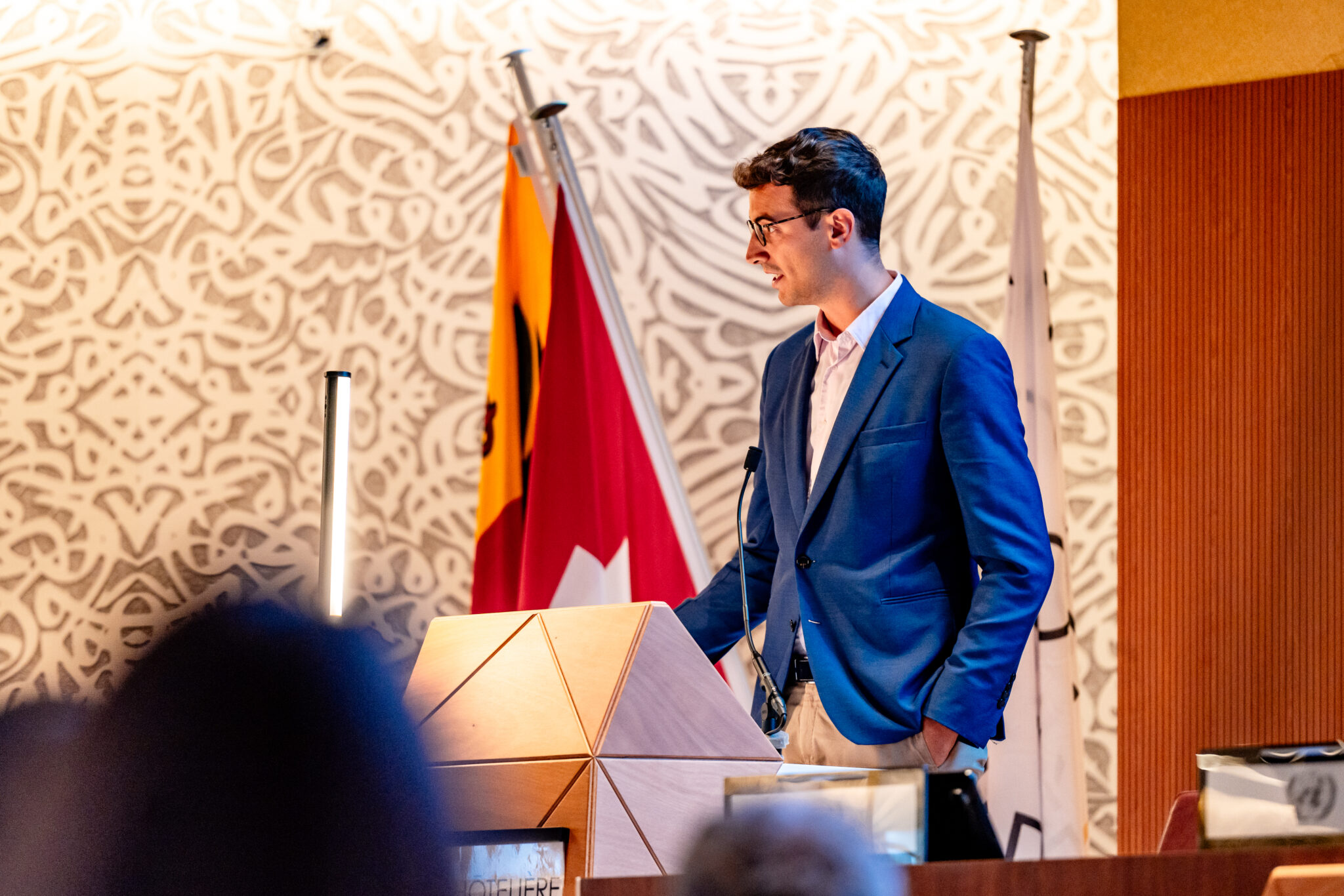
Outlook and future
For those unfamiliar with the job, could you explain what the role of District Manager at Meininger Hotels entails?
Indeed, the role can vary depending on the context, but let me explain my specific situation. Initially, I was a hotel manager, but following a number of changes in the company – with my direct superior changing sectors and the Zurich manager resigning at the same time – an opportunity arose. Having a good knowledge of the Swiss market and wishing to progress, I seized the opportunity, expressing by e-mail my desire to progress and take charge of regional management in Switzerland, although no such position was officially open at the time. After an interview, I got the job, taking advantage of the opportunity to become the main point of contact for Switzerland, a fairly specific market.
In my current role, I supervise the hotel managers in Geneva and Zurich, acting as a link between them and head office. I ensure that several key performance indicators, such as customer satisfaction, employee satisfaction and revenue, are achieved efficiently. I also ensure the ongoing development of my teams to avoid monotony in their work, and undertake various assignments for the head office.
For example, I recently covered for a colleague on paternity leave in the quality and systems department, and from this year onwards, I’ll be reviewing housekeeping operations at group level for our 36 hotels. We have identified great opportunities for optimization through the use of advanced technologies, such as robots. My job is also to work closely with the purchasing department to implement these improvements in all our establishments, and to personally assist the hotels in fine-tuning their operations.
It’s an ambitious project for the coming year, and I’m looking forward to seeing it through.
What are the main challenges you face in managing several sites simultaneously?
My role mainly involves telecommuting, about 80% of the time, which allows me to manage everything digitally thanks to the advanced tools we have at Meininger. I can carry out all my tasks from my laptop, which is very practical. Nevertheless, I visit the sites regularly: once a month in Zurich for three days, and once a week in Geneva, as I live a five-minute walk away. I also visit other hotels for various training courses and audits.
What I particularly appreciate is this mobility; it means I don’t have to stay isolated at home or in the office for long periods. I often work from cafés or hotel bars, where I can spend a few hours before moving on. This allows me not only to vary environments, but also to observe and collect ideas to improve our services.
The main challenge lies in maintaining team cohesion despite the distance. The digital dimension is effective, but it’s no substitute for face-to-face interaction, which is why I prefer regular calls via Teams to simple e-mails. These visual interactions capture the managers’ state of mind more effectively than simple written exchanges. In this way, I try to stay connected with the teams and understand the issues they face.
Our management structure is not strictly vertical, but rather horizontal, which reflects Meininger’s DNA, characterized by an open and accessible corporate culture. This creates a family environment where people come first, which is essential for me in the day-to-day management of our establishments across different countries.
How do you balance the company's strategic expectations with the operational needs of your teams in the field?
My operational experience is a major asset in meeting this challenge. Having myself worked in the field in a number of highly operational positions, I have acquired a deep understanding of the needs of our teams.
For several years now, I’ve held a role at Group level, which enables me to develop a more global vision. I understand that certain standards that may seem inappropriate in Geneva, for example, can actually be beneficial for the company as a whole. This perspective enables me to implement the necessary standards while gaining the understanding of the teams in the field.
To achieve this, I make sure I clearly communicate the underlying reasons for decisions taken, rather than simply imposing directives. It’s about showing teams why certain actions are necessary and how they fit into the company’s overall strategy. The key is communication – a point we’ll cover in more detail – because, as in catering, the way you “serve” an idea is as crucial as the idea itself. A project can be excellent, but if it’s badly presented, it won’t be accepted.
It’s a bit like with food in a restaurant: an average dish can be perceived as excellent if it’s well served with a smile. It’s by adopting this approach that I manage to align strategic objectives with operational realities.
How do you see the hospitality sector evolving in the years ahead?
Based on my experience in a variety of establishments, from family-run to unclassified, three-, four- and five-star, I can see that the hospitality sector is in a state of flux. I foresee a gradual reduction in supply in the mid-range segment, i.e. three- to four-star hotels. These establishments, which are operationally expensive, do not generate the revenues of a five-star hotel while sharing similar costs, putting them in a financially precarious position.
Conversely, the five-star luxury market is likely to endure and even require adaptation to incorporate more modern technologies, thus meeting the expectations of a clientele that values innovation. A trend towards minimalism is also to be expected in my segment. Consumers are increasingly opting for simple yet functional products, preferring more authentic and personalized experiences.
Thus, the future may favor establishments offering smaller but fully-equipped rooms, lobbies transformed into welcoming living spaces with bars and spaces adapted to nomadic work. The check-in process will mainly take place online, and traditional services such as mini-bar or room service will become obsolete, replaced by more modern alternatives such as delivery apps.
In short, the sector should evolve towards more economical, well-located offerings, less focused on superfluous services and more in tune with customers’ digital and mobile lifestyles.
“My hotel of the future would be a place where technology and humanity complement each other”.
If you were to design the hotel of the future, what would be at the heart of your vision: technology, traditional hospitality, or something else?
In my conception of the hotel of the future, I would incorporate a balance between technology and traditional hospitality. Technology is indispensable in our digital age; to ignore this aspect would be to overlook current and future trends in the sector. It brings innovative solutions that facilitate management and the customer experience, such as automated check-ins or the use of AI to personalize service.
However, the human element will remain paramount. As automation becomes more commonplace, qualitative human interaction will become a sought-after luxury. This means that employees will need to be highly skilled, versatile, and well-trained to deliver a truly personalized and warm experience. Hospitality must evolve towards a greater appreciation of human skills, combined with improved compensation and working conditions, reflecting the importance of their role in the establishment.
In short, my hotel of the future would be a place where technology and humanity complement each other: technology to optimize management and personalize the experience, and enriched traditional hospitality to enhance every interaction with the customer, guaranteeing a unique and memorable experience.
As a District Manager, how do you adapt to attract this new generation of talent to your teams?
To attract a new generation of talent, I emphasize a more relaxed and authentic approach, reflecting our brand values. Unlike a formal environment where suits would be the norm, we encourage our teams to wear more casual clothing such as hoodies or t-shirts, which contributes to a more relaxed and open working atmosphere. This dress policy also symbolizes our global approach: we recruit individuals for who they are, not to fit a rigid or impersonal model.
As well as promoting an informal working environment, I emphasize the need for inclusion and digitalization in our daily practices. For example, leave requests are managed via an app, which simplifies the process and better matches the technological expectations of Generation Z. Not only does this make for greater efficiency, it also reinforces transparency and responsiveness, key values for young talent.
Inclusiveness is also at the heart of our strategy. We actively support our employees through various personal transitions, including those related to gender identity, by providing administrative support and fostering open dialogue within teams. We ensure that our working environment is not only inclusive in word but above all in deed, avoiding inappropriate behavior and promoting a culture of mutual respect.
In short, to attract and retain emerging talent, it is crucial to create a work environment that combines flexibility, technology and respect for diversity. These elements form the basis of our approach to adapting our teams to the changing job market and the expectations of new generations.
You recently decided to complete your professional career with the Post-Diplôme Hotel Management program offered by the École Hôtelière de Genève. What motivated you to join the Post-Diplôme Hotel Management program at the École Hôtelière de Genève?
“Several factors led me to this decision.
Above all, it was a combination of circumstances. At the time, I was looking for training, because I don’t have any qualifications. I didn’t pass the baccalaureate and I’d never obtained any academic certification. I’ve been working in the hotel industry for over 10 years, and in the professional world for 13, even 15 years. I’ve always been able to evolve thanks to my experience in the field, which has enabled me to reach the position of District Manager today.
However, now that I’m settled into my job, I was keen to take on a new challenge, but also to validate and concretize my career path with a diploma. While researching different options online, I came across the Post-Diploma in Hotel Management offered by the École Hôtelière de Genève. This course matched my expectations perfectly.
Firstly, because it’s offered in Geneva. I prefer a local school to distance learning in other countries, like the USA, for example. Secondly, the format is ideal: courses take place online, two evenings a week. As I’m often away on business, it’s impossible for me to physically attend regular classes.
Finally, what particularly appealed to me was the richness and variety of the program. Most of the professors are active professionals in their field, often running their own companies. This enables them to provide concrete, up-to-date insights into their field. For me, these practical exchanges and this approach rooted in the reality of the business are extremely enriching.
“Above all, you have to think about having fun and enjoying what you’re doing.”
Finally: If you could go back to the beginning of your career, what advice would you give yourself?
Above all, you need to be patient.
Like many people, I wanted to evolve quickly, but it’s important to understand that you don’t know everything from the start, even if it sometimes seems that way. The most important thing is to have fun and enjoy what you’re doing.
Personally, I’ve always loved working in all the hotels I’ve been to. And if I wasn’t feeling well somewhere, I preferred to leave, but not immediately. For example, when I started at Mercure, the first month was very difficult. I had to manage 70 check-ins a day on my own, as well as taking reservations over the phone. It was exhausting.
However, over time and thanks to some great colleagues, I ended up having some incredible times. In fact, I’ve kept good contacts in all the hotels I’ve worked in, and I still visit them when I’m in town.
So I’d say the key is to combine patience, rigor in your work and, above all, enjoyment of what you’re doing. If you manage to find this balance, every step becomes a rewarding and memorable experience.

